Want to add a hotel stay or change your flights?
Just call our team of cruise specialists to help build your dream cruise holiday today!
Prices based on 2 people sharing. Cruise only price does not include flights. Fly-cruise price may vary by chosen UK airport.
Cruise only holidays are financially protected by ABTA. Fly cruise holidays are financially protected by AE Expeditions under ATOL number
Please click here to check the essential travel requirements before booking this cruise.
Itinerary

Hobart, Tasmania
Straddling the Derwent River at the foot of Mt. Wellington's forested slopes, Hobart was founded as a penal settlement in 1803. It's the second-oldest city in the country after Sydney, and it certainly rivals its mainland counterpart as Australia's most beautiful state capital. Close-... Read More
Hobart, Tasmania
Hobart, Tasmania
At Sea
At Sea
At Sea
Macquarie Island, Tasmania
Macquarie Island, Tasmania
At Sea
At Sea
At Sea
Cruise East, Antarctica, Ross Sea
Cruise East, Antarctica, Ross Sea
Cruise East, Antarctica, Ross Sea
Cruise East, Antarctica, Ross Sea
Cruise East, Antarctica, Ross Sea
Cruise East, Antarctica, Ross Sea
Cruise East, Antarctica, Ross Sea
At Sea
At Sea
At Sea
At Sea
Auckland Islands
Auckland Islands
Carnley Harbor, Auckland Islands
Auckland Islands
Campbell Island
At Sea
Dunedin
What's Included with
AE Expeditions
From the start, AE Expeditions was destined to be different. Our passion for adventure, exploring wild places and sharing the experience with friends burns just as brightly as it did 30 years ago, as does our preference for small-group, personal expeditions.
Daily shore excursions, guided walks, Zodiac cruises and some activities^
Entry fees to historic or tourist sites
An experienced team of destination specialists, activity leaders, and local guides*
Daily breakfast, lunch, dinner, afternoon tea and snacks
House wines, beer and soft drinks included with dinner
Captain’s Farewell drinks including four-course dinner, house cocktail, house beer and wine, non-alcoholic beverages
Complimentary 3-in-1 polar jacket on polar voyages
Complimentary use of Muck boots during the voyage
Complimentary Starlink wifi onboard
An informative and entertaining lecture program by our team of experts
Complimentary use of fitness centre
Complimentary access to onboard expedition doctor and medical clinic (initial consult)
Comprehensive pre-departure information and Antarctic or Arctic Primer booklet
Explore Greg Mortimer


Dining Room
Meals are a great time to soak up the expedition camaraderie in our open seating dining area. Share stories with your fellow travellers and ask our expedition team questions that may have come up during the day.
Tea, coffee and snacks are available 24 hours a day, and our chefs offer different menu options and courses for each meal. Enjoy the range of house wine, beers and soft drinks included with dinner after a long day in the wild.
We also invite you to join your captain and expedition team for informal Captain’s Farewell drinks, with complimentary beverages and cocktail appetisers, followed by a 3 course meal.
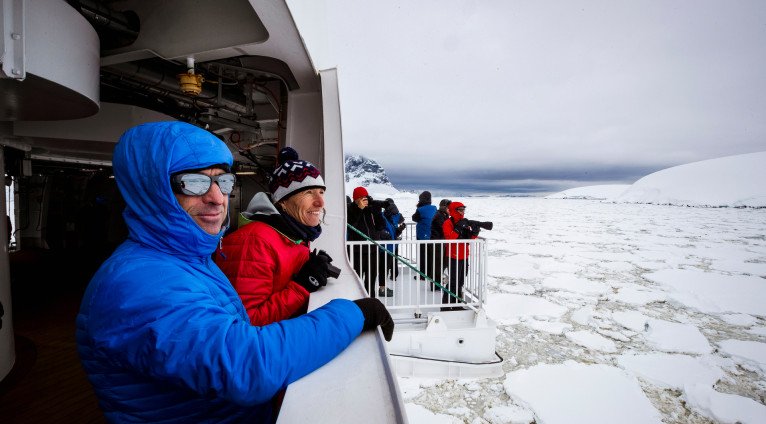

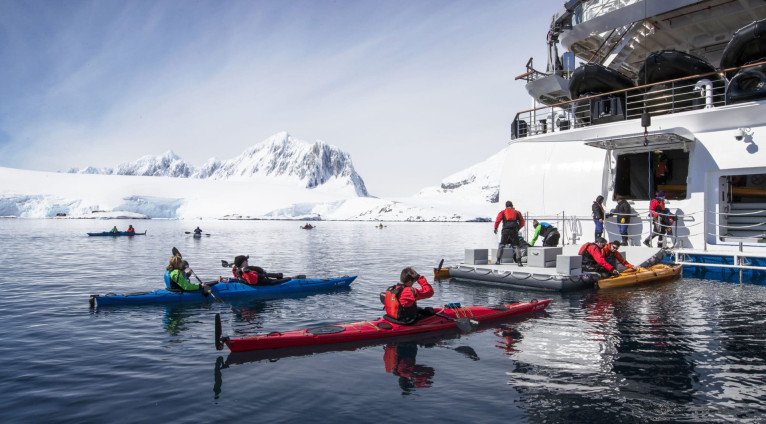
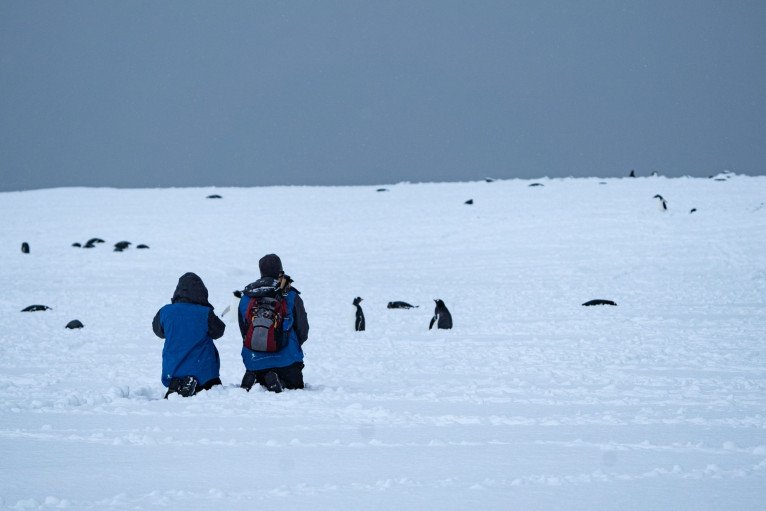
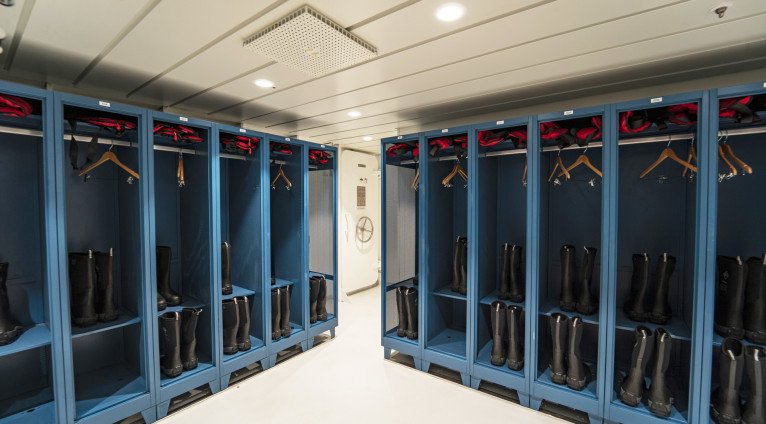
Excursions
Although the ship is fun, the real enjoyment comes from the many shore excursions that are available. Depending on weather conditions, it may be possible for multiple landings, taking a look at everything from rock formations and ancient ruins to cute groups of penguins. We know time is of the essence in these wild locations, so the Greg Mortimer has been designed to carry 15 Zodiacs, which means you can maximise your time on shore.
From four dedicated sea level launching platforms, transfers are quicker, safer and enable you to get closer to the action for a longer period of time. Just remember to charge your camera before you step onto the Zodiac!
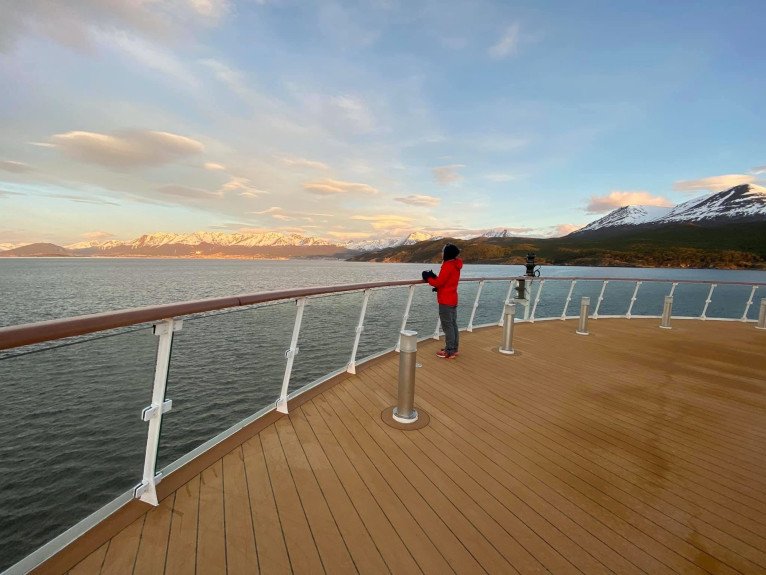

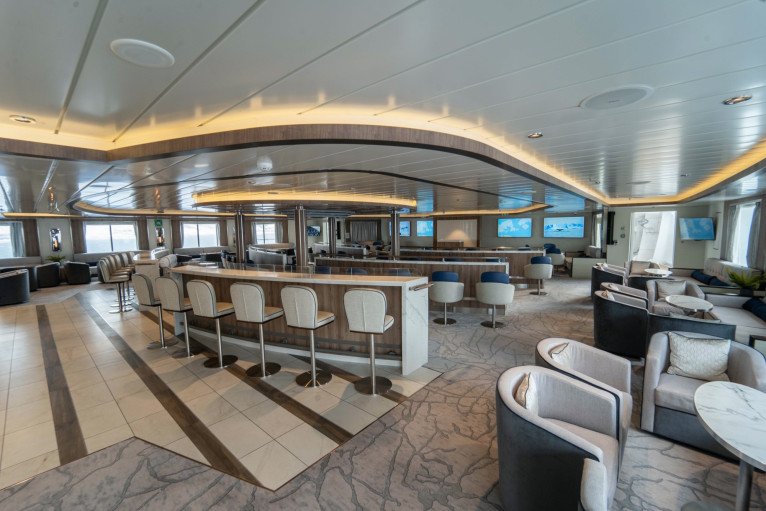
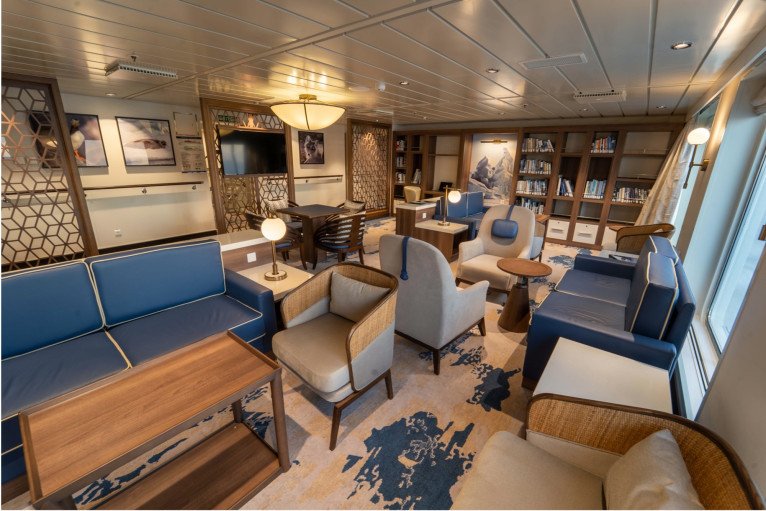
Observation Points
Let's face it – you don't want windowless rooms when travelling around some of the most beautiful locations around the world. This is why the Greg Mortimer is designed with plenty of dedicated observation spaces – ideal for keen bird spotters, wildlife watchers and those wanting to watch the scenery go past.
From the indoor 180-degree lounge and outdoor 360-degree open deck, both on deck 8, to the 270-degree open sundeck on level 7, there are plenty of observation points to share around the ship! If these are full, then you can take up a spot on one of the two hydraulic viewing platforms on deck 5.
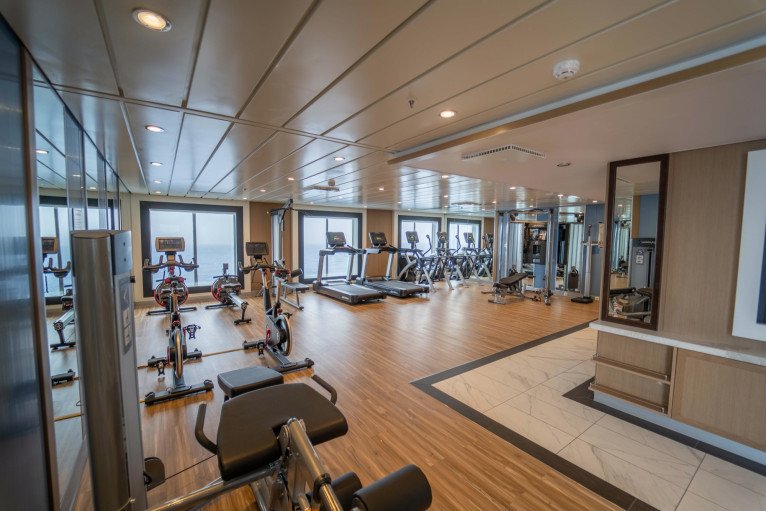



Wellness Centre
You are welcome to visit the wellness centre during your voyage.
Deck 8

- Observation decks
- Observation Lounge
- Top Deck
- Bars
- Jacuzzis
- Elevator
Deck 7

- Elevator
- Bridge
- Observation decks
- Library
- Gym
- Wellness centre / sauna
- Sun Deck
- Junior Suites
Deck 6

- Elevator
- Balcony Stateroom (A, B, C)
- Balcony Stateroom Superior
Deck 5

- Elevator
- Lecture room & lounge
- Assembly Station
- Reception
- Ship Shop
- Dining Room
- Bars
- Viewing Platforms
- Hydraulic viewing platforms
- Observation Decks
- Optional private dining room
Deck 4

- Elevator
- Main entrance
- Expedition desk
- Captain's Suite
- Balcony Staterooms (A, B, C)
- Balcony Stateroom Superior
Deck 3

- Change Room/Mudroom
- Zodiac access points
- Activity Launching Platforms
- Medical Centre
- Elevator
- Aurora Stateroom Triple
- Aurora Stateroom Twin
Greg Mortimer Cabins & Suites


Aurora Stateroom Triple


Balcony Stateroom Superior





_-_Railway_Station-custom_banner-thumb.jpg)
_-_Railway_Station-custom_banner-banner_half.jpg)
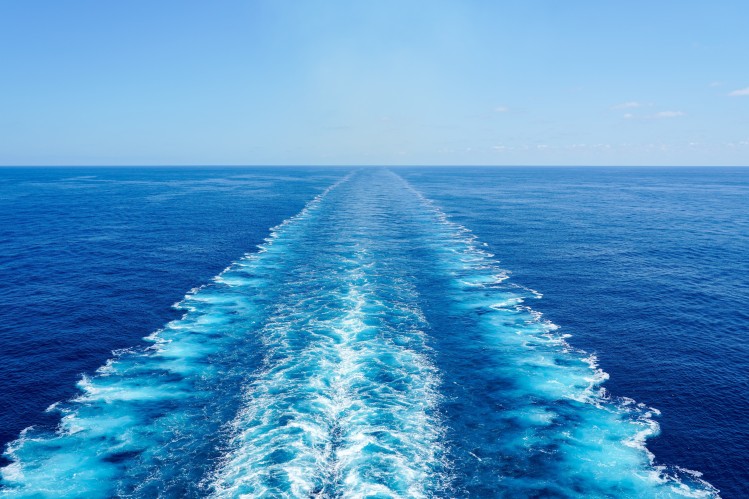




-large_thumb.jpg)





-large_thumb.jpg)